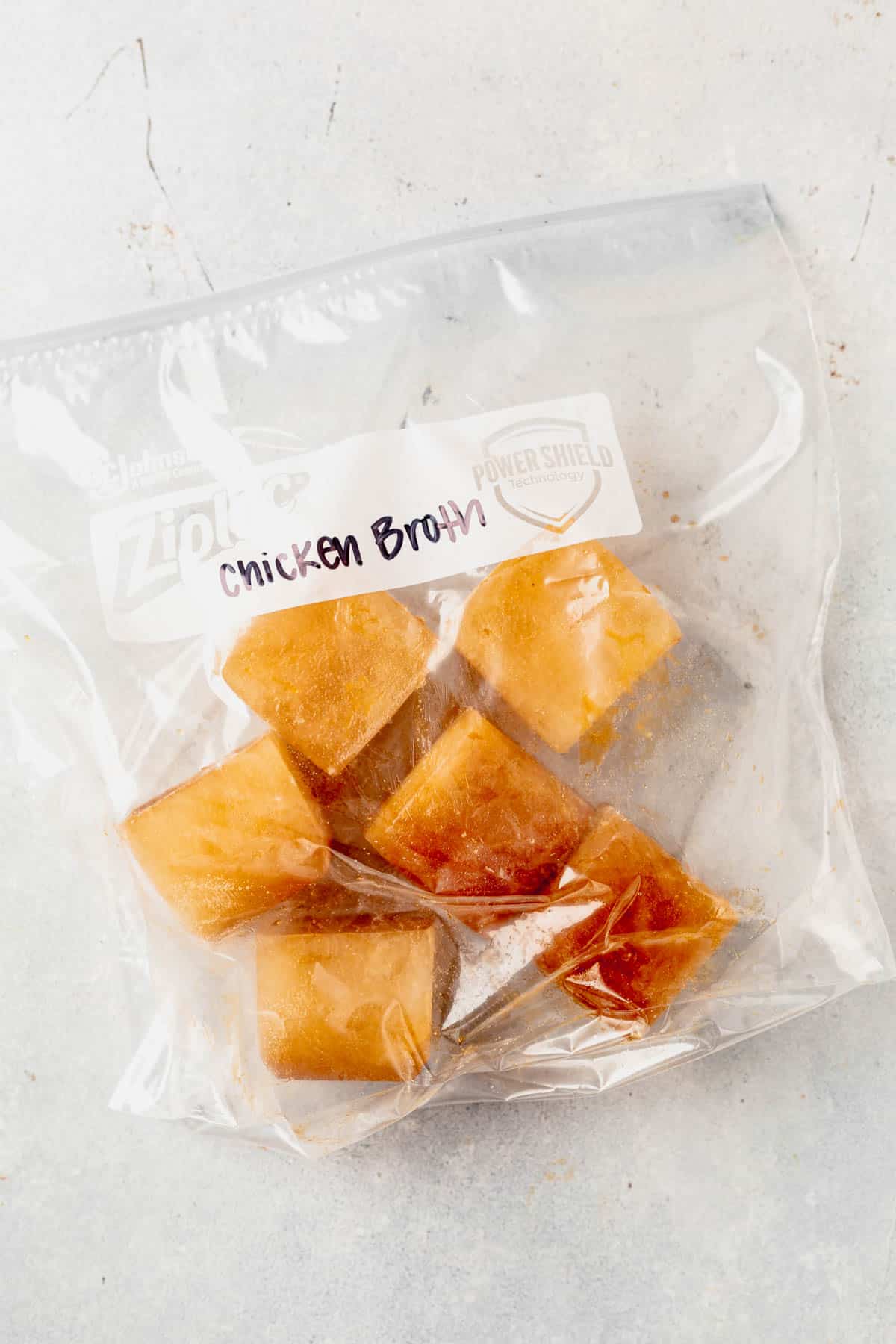Chicken broth is a common ingredient found in many kitchens. It serves as the base for soups, stews, risottos, and other dishes. But like any perishable food, chicken broth can go bad if not stored and handled properly. Consuming spoiled chicken broth can cause foodborne illness. So what exactly happens if you eat bad chicken broth? Let’s take a closer look.
Understanding Chicken Broth Spoilage
Chicken broth offers the perfect environment for bacterial growth. It contains lots of moisture and nutrients that bacteria need to multiply. Chicken broth can be contaminated either during the preparation process or due to improper storage. Common culprits include:
-
Salmonella – This bacteria is frequently found in poultry products.
-
Campylobacter – Another bacteria that can contaminate poultry,
-
Clostridium perfringens – Can grow in cooked broth that is improperly cooled.
-
Staphylococcus aureus – Caused by poor handling and cross-contamination.
These bacteria produce toxins as they multiply even if there is no visible mold or foul smell. So don’t rely on sight and smell alone to determine if your broth has gone bad.
Recognizing Spoiled Chicken Broth
Look out for these signs that indicate your chicken broth has spoiled
-
Change in color – Broth may appear murky or develop a strange hue.
-
Unusual odor – Spoiled broth smells sour, rancid or unpleasant.
-
Texture change – Broth could become thick and slimy.
-
Taste – Bad broth will have a metallic, bitter or sour taste.
-
Mold growth – Check for fuzzy mold on the broth surface.
-
Past expiration date – Don’t use store-bought broth past the expiry date.
When in doubt, remember it’s better to be safe than sorry. Toss the broth if you notice any of these red flags.
Consequences of Consuming Spoiled Broth
Eating bad chicken broth can cause foodborne illness, with symptoms like:
- Nausea, vomiting, diarrhea
- Abdominal cramps and pain
- Fever and chills
- Fatigue and weakness
- Dehydration
Severe cases may even require hospitalization. Vulnerable groups like pregnant women, elderly, infants and those with weak immunity are at higher risk of complications.
Foodborne pathogens can even continue to live and multiply in your intestines long after eating the contaminated broth. This leads to symptoms that tend to last longer.
How Long Symptoms Last
The duration of food poisoning depends on factors like:
- Type of pathogen
- Amount of contaminated broth consumed
- Strength of your immune system
Milder cases caused by common bacteria may resolve within 1-3 days. More severe bacterial infections can last over a week.
Viruses like norovirus tend to pass quicker within 24-48 hours. But the vomiting and diarrhea can be quite intense.
Seek medical help if symptoms don’t improve or you experience bloody stools, high fever, dehydration etc.
Preventing Food Poisoning from Chicken Broth
You can avoid getting sick by taking these precautions:
-
Refrigerate promptly – Cool and refrigerate broth within 2 hours of cooking.
-
Small containers – Divide broth into small containers for quick cooling.
-
Short term storage – Refrigerated broth keeps for 3-4 days.
-
Freezer storage – Frozen broth stays safe for 4-6 months.
-
Reheat properly – Boil broth before serving.
-
Avoid contamination – Use clean utensils and wash hands thoroughly.
-
Check for spoilage – Look, smell and taste broth before use.
-
Buy small quantities – Don’t stock up more than you need.
Being careful about broth storage, handling and hygiene is key to prevent bacterial growth and illness.
What to Do if You Get Sick After Eating Bad Broth
If you suspect food poisoning, take these steps:
-
Stop eating the broth immediately if you notice odd taste, smell or appearance.
-
Drink plenty of fluids like water, juices or oral rehydration solutions to prevent dehydration.
-
Take over-the-counter anti-diarrheal medication for symptomatic relief.
-
Get medical assistance if you have high fever, blood in stools, vomiting etc.
-
Notify the store or restaurant if you suspect the purchased broth made you sick.
-
Save any leftover broth samples for testing by health authorities.
Early intervention helps reduce the severity and duration of food poisoning symptoms. Seek prompt medical care, especially if you are in a high-risk group.
Can Bad Chicken Broth Cause Long-Term Health Issues?
In most healthy people, food poisoning from spoiled chicken broth causes temporary gastrointestinal distress. The body is able to eliminate the toxins once the illness runs its course.
However, severe cases can potentially lead to secondary complications, like:
-
Reactive arthritis – Joint pain and inflammation.
-
Irritable bowel syndrome – Digestive problems like diarrhea, bloating etc.
-
Guillain-Barre syndrome – Muscle weakness caused by nerve damage.
-
Hemolytic uremic syndrome – Kidney failure.
But such long-term health issues are quite rare. Those with underlying medical conditions are more prone to adverse outcomes from foodborne illnesses.
Key Takeaways
-
Eating spoiled chicken broth can cause foodborne disease leading to vomiting, diarrhea and stomach cramps.
-
Look out for signs of spoilage like odor, texture and color changes. Don’t rely on smell or taste alone.
-
Drink lots of fluids and seek medical care if you have severe symptoms.
-
Prevent illness by practicing proper handling, cooling and storage of chicken broth.
-
Discard leftover broth within 4 days and don’t use past expiration date.
-
Seek prompt treatment if food poisoning symptoms persist beyond a few days.
Being cautious about chicken broth safety provides peace of mind and protects your health. Handle with care and discard any broth you are unsure about. It’s better to waste some broth rather than risk getting sick from consuming spoiled broth. Stay healthy!

The Difference Between Chicken Broth and Stock
Chicken broth and stock are similar products that are made from boiling chicken bones and vegetables in water, but there are some key differences between the two.
- Ingredients: Chicken broth is typically made with meat and bones from chicken, along with vegetables and seasonings On the other hand, chicken stock is made with just bones and vegetables.
- Flavor: Chicken broth is seasoned and often has a more pronounced flavor than chicken stock, which is more neutral in taste.
- Cooking time: Chicken broth is typically cooked for a shorter amount of time, around 2 to 3 hours, while chicken stock is cooked for a longer time, 4 to 6 hours or even overnight, to extract more flavor and nutrients from the bones.
- Consistency: Chicken broth is often more liquid and has a thinner consistency than chicken stock, which is thicker and has a more gelatinous texture.
The two most obvious signs are whether there is mold growing on any surface of the broth, or whether it smells a little bit off (especially sour).
The spoiled chicken broth will have a sour taste. Chicken broth has a very mild flavor, so if it’s strong or off-tasting, toss it.
Although beef broth is different, you can generally apply these same rules on how to tell if chicken broth is bad when checking and storing beef broth.
As a general rule, homemade and opened store bought chicken broth is good for 3-4 days in the fridge but is safe to consume for up to 7 days as long as there aren’t any signs of spoilage.

Can You Freeze Chicken Broth?
Freezing chicken broth is a great way to extend its shelf life and minimize waste. Here’s how to do it!
- Cool: Let the broth cool completely to room temperature. Do not freeze hot liquids as this can cause freezer burn and compromise the quality of the broth.
- Ice cube trays: Pour the chicken broth into ice cube trays and place in the freezer on a flat surface. Freeze until solid, ideally overnight.
- Label and date: Label the containers or bags with the date and type of broth. The printed date will help you easily keep track of what you have stored in the freezer.
- Freeze: Remove the broth from the ice cube trays and transfer them to the labeled container for freezer bag.
- Thawing: To thaw the frozen broth, transfer it to the refrigerator and let it thaw overnight or place the container or bag in a bowl of cold water. Do not thaw the broth on the countertop, as this can increase the risk of bacterial growth.
- Weck jars: A glass jar with a tight lid is the perfect container for chicken broth. We love all sizes of weck jars.
- Silicone ice cube tray: these ice cube trays make freezing chicken broth easy to freeze and remove.
- Reusable storage bag: avoid plastic and try storing frozen chicken broth in a silicone bag.

How do you know if chicken broth is bad?
FAQ
What are the symptoms of eating bad chicken broth?
Foodborne illness, typically known as food poisoning, results from eating contaminated, spoiled, or toxic food. The most common symptoms of food poisoning are nausea, vomiting, and diarrhea.
What happens if I drink spoiled chicken broth?
Consuming expired chicken broth can indeed pose a risk of food poisoning due to the growth of harmful bacteria.
How can you tell when chicken broth is spoiled?
If it develops any smell or strange appearance, the broth should be thrown away. Check for signs of discoloration or cloudiness in the liquid. The texture shouldn’t be slimy either. If there’s a layer of fat on the broth’s surface, that’s okay, but if you see any mold, the broth is spoiled.
Is it bad to eat expired chicken broth?
